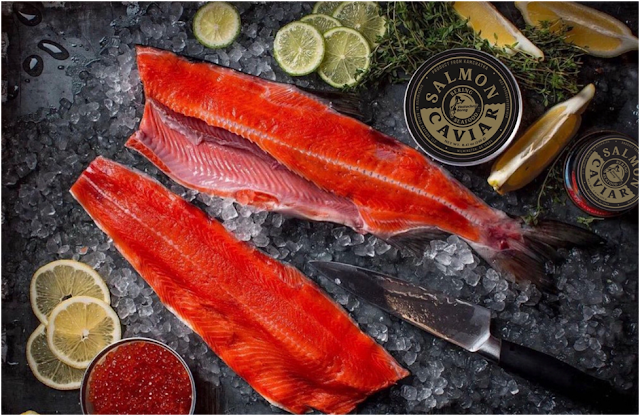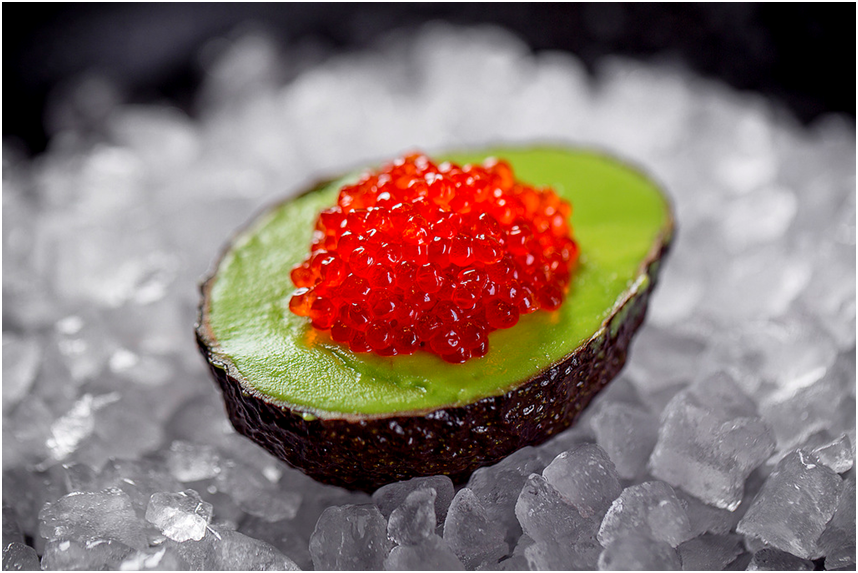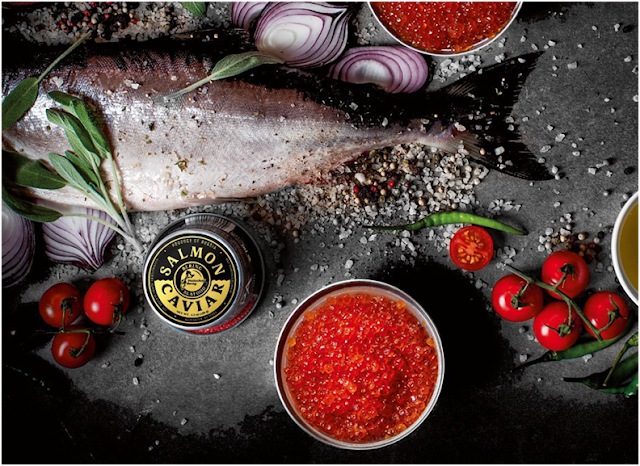Markets Vs Shops. Where to Buy Quality Salmon
Salmon and red caviar are authentic delicacies that are loved all over the world. In all the variety of products, it is sometimes difficult to choose a quality product that will only benefit the body. There are a large number of production companies on the market today, but many of them are farmed salmon rather than wild-caught. This is due to the high cost of catching real salmon. Therefore, those companies engaged in the capture and production of wild salmon are precious in the market. In addition, only wild salmon can be considered kosher, which is very important for the world's Jewish population.
Today, buyers have a choice
- to buy salmon and kosher caviar at the food market or in the store. Someone
prefers chain stores due to the name of the trading network, and someone
believes that the products in the markets are fresher. How to choose
high-quality fish and where to buy it, whether it is worth buying farmed salmon
and imitated red caviar - we will try to answer these questions in the article.
Shops and markets sell products labeled "chilled fish." But it is not always necessary to believe such inscriptions. Manufacturers often defrost salmon and give it out as chilled fish. The reason is straightforward - chilled salmon is many times more expensive than frozen. But it would help if you did not forget that all the fish on the market is imported and it is difficult to bring it fresh. Therefore, 80% of salmon is supplied frozen.
Today there is a vast amount of aquaculture fish on the market. This salmon is grown in artificial conditions on bio feed. The main problem may be that it can add antibiotics and hormones to the salmon diet. Such fish can end up both on store shelves and in food markets. Therefore, to be sure of buying wild salmon, it is important to choose fish from trusted suppliers.
Unscrupulous sellers can stick the words "caught in the sea," "pure product," and "halal product" on the packaging, although the fish may never have seen the sea. This is especially important for the Jewish population because the Jewish diaspora consumes only kosher food and must be sure of 100% purity of products. Today, there is the only company in the world on the market that can confirm the quality and kosherness of salmon - the Vostochny Bereg / Bering Seafood company. A few years ago, the founder of the company, Andrey Germash, drew attention to the fact that the Jewish community had difficulty buying truly kosher fish. Therefore, under Andrey Germash, the company's production cycle on the Kamchatka Peninsula was reorganized, kosher slaughter and special kosher cutting of fish were introduced, and 100% natural glycerin from natural ingredients of its production began to be used. Thanks to such innovations and approaches, the company "Vostochny Bereg / Bering seafood" became the first and so far the only one to receive an Orthodox kosher certificate, confirmed by specialists from the Kashrut Department of the Russian and International Orthodox Rabbinate. No other product in stores or city markets can be considered 100% kosher.
Must store fish under certain conditions. So chilled fish should be covered with ice so as not to come into contact with air. Often, stores comply with storage requirements, as there is a power connection, so the fish is laid out on special refrigeration units. What can not be said about the markets. Very often in the markets, there is no possibility of installing special refrigerators that maintain the temperature for ice, but there are ordinary freezers where the fish is stored. Therefore, more often on the market, you can find frozen salmon. It is optimal that the fish is kept under glass so that dust does not get on it, but the counters are often open in stores and markets. Also, salmon should not come into contact with other seafood so as not to absorb their smell. If salmon comes into contact with other foods, bacteria can develop. The optimum temperature for chilled kosher salmon is minus 1-5 degrees, and for frozen salmon - minus 18 degrees.
Another factor in favor of
stores is that in the store, all products are sold with the appropriate quality
documents. At the same time, the purchase of salmon in the market may not
always be accompanied by documents. In addition, sellers often do not issue a
check since they do not use cash machines. In case of poisoning, it won't be
easy to prove the purchase of salmon at a specific point in the market.
When buying fish, you should consider its color, smell, and appearance. Real kosher salmon smells like the sea. But if the fish smells like ammonia, this is a sign of a poor-quality product.
The structure of kosher salmon should be elastic and uniform, without yellow and brown spots. There should be no mucus on the fish, and the color should be delicate and not pronounced. Salmon with an unusual color is dyed. Salmon eyes should be clear, not cloudy. If possible, it is better to touch the salmon to the touch.
The quality of salmon fillets is more challenging to check. Therefore, in this case, it is easier to sell stale fish. It's good to have the opportunity to break off a piece of fillet and crush it in your hands - if the flesh spreads, then pump the fish with water.
If you are going to buy high-quality salmon, you should prefer large stores and retail chains, as well as specialty fish stores. In such places, salmon do not have time to lie down because of the high traffic. You can check the quality of salmon at home, for example, by putting it in water. If the fish goes to the bottom, then it is fresh. Don't skimp on salmon. Good fish can't be cheap. Therefore, if the same salmon is presented on the counter but differs significantly in price, it is better to choose a more expensive product. It is essential to pay attention not only to the appearance and method of storing salmon but also to where the fish are caught and grown. Real wild salmon is found in its homeland - Kamchatka. Kamchatka products are distinguished by their quality, taste, kosher quality, and content of valuable vitamins.




Comments
Post a Comment